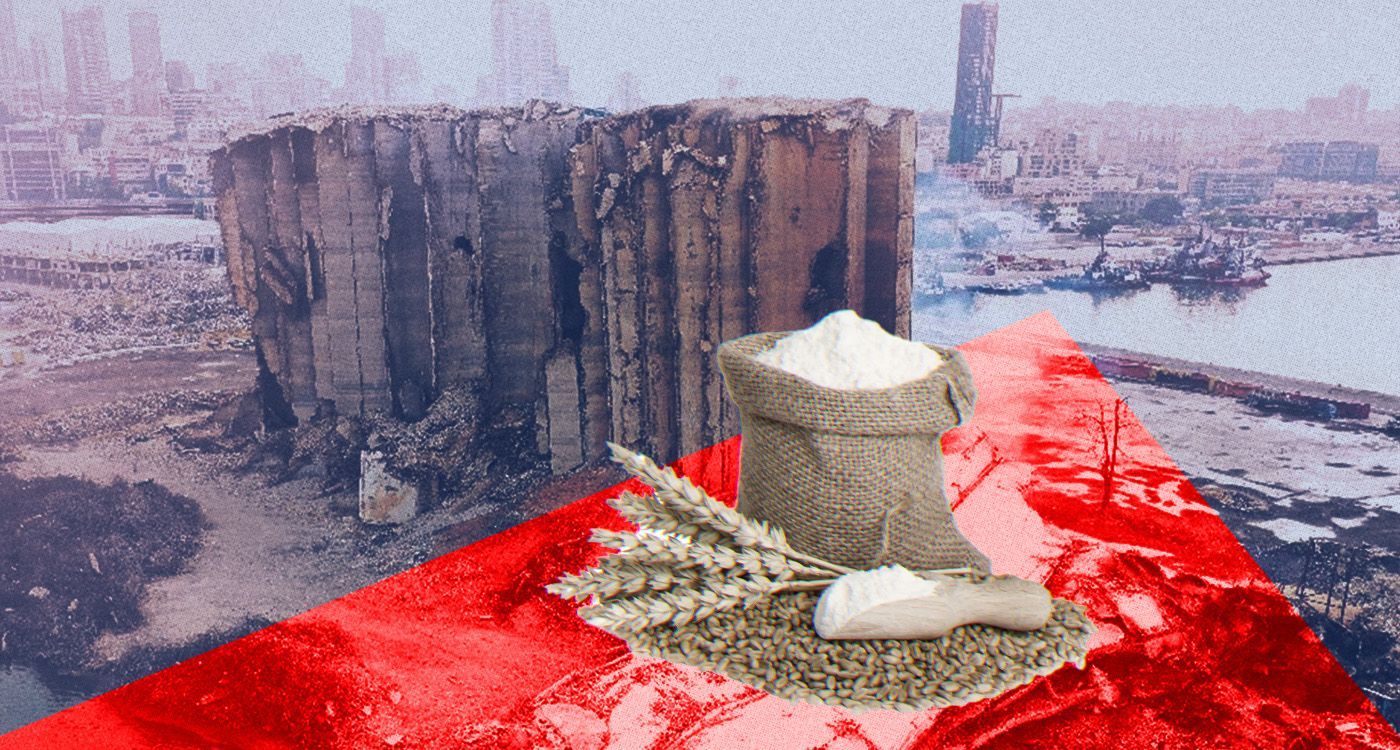
With its grain silos destroyed and near-total reliance on imports, Lebanon is racing against time to secure its wheat supply and keep bread on the table. An Iraqi donation, a World Bank loan and a flurry of high-level meetings underscore the gravity of a food crisis that now threatens the nation’s very survival.
Lebanon, which is already weakened by an unprecedented economic collapse, has for years faced a vital challenge: ensuring steady access to wheat. The destruction of Beirut Port’s silos in the August 4, 2020, explosion laid bare Lebanon’s food insecurity, erasing a vital storage hub and turning every shipment and agreement into a matter of national survival.
This week, Minister of Economy and Trade Amer Bisat met with representatives from the World Food Program (WFP) and State Security officials to iron out logistics for a major Iraqi wheat donation. The goal is to ensure swift delivery to Beirut under optimal conditions.
According to the Ministry of Economy, this aid forms a part of a broader cooperation agreement long under negotiation between Beirut and Baghdad. A Lebanese delegation is set to visit Iraq next Tuesday to finalize not only wheat-related arrangements but other economic files.
While exact volumes remain undisclosed, ministry sources suggest the Iraqi shipments could sustain Lebanon for several weeks, offering both financial relief and a temporary reprieve. For Iraq, the gesture reinforces regional ties. For Lebanon, it is a lifeline.
The stakes are high: Lebanon consumes roughly 600,000 tons of wheat annually, yet local production covers barely 10% of demand. Despite fresh aid, the outlook remains precarious. Lebanon’s wheat crisis is no longer just about bread, it is a test of the state’s ability to nourish its people amid one of the deepest economic collapses in its history.
Precarious Stocks After the Silo Destruction
Until 2020, Lebanon could rely on the grain silos at Beirut port, built in the 1960s with a storage capacity of 120,000 tons. They provided a wheat buffer lasting between one and three months, depending on import volumes.
That buffer vanished in the August 4 blast, which destroyed the silos and exposed the country’s fragile food security. Since then, Lebanon has depended on scattered private warehouses in Tripoli, Saida and the Beqaa Valley. Today, reserves rarely exceed two months, leaving the nation acutely vulnerable to global price shocks and regional instability.
In May 2022, the World Bank extended a $150 million loan to finance wheat imports for nine months, aimed at both securing supply and stabilizing bread prices for Lebanese households. The funding bought time, but not solutions. It ensured short-term shipments without addressing Lebanon’s deeper structural weaknesses: the absence of national storage infrastructure, a coherent agricultural strategy and modern logistics.
Lebanon now survives shipment to shipment. Each cargo, whether purchased, donated or loan-financed, offers only temporary relief.
At some point, a strategic decision must be made: rebuild the silos, expand storage capacity and invest in domestic production. Because while a country without bread may not starve overnight, it risks unrest. In a nation already on edge, wheat is no longer just a commodity, it is a measure of survival and stability.




Comments